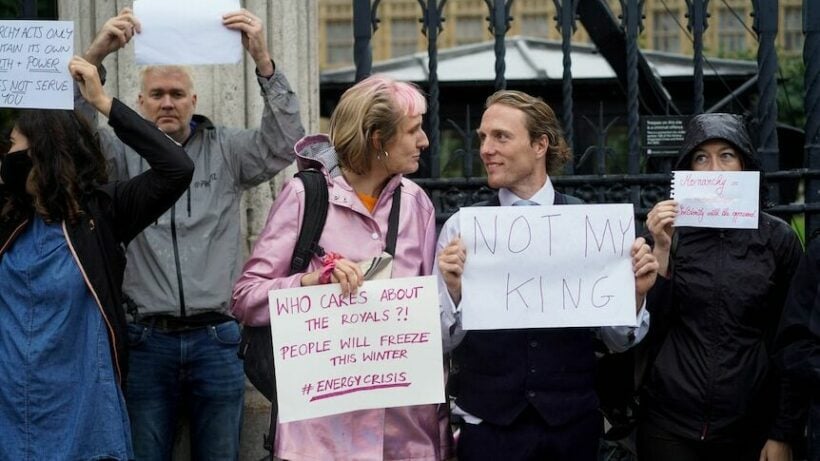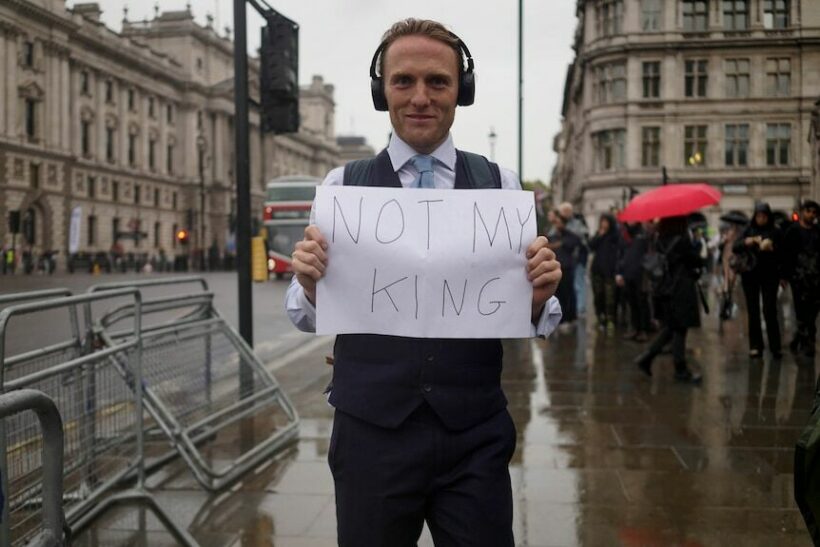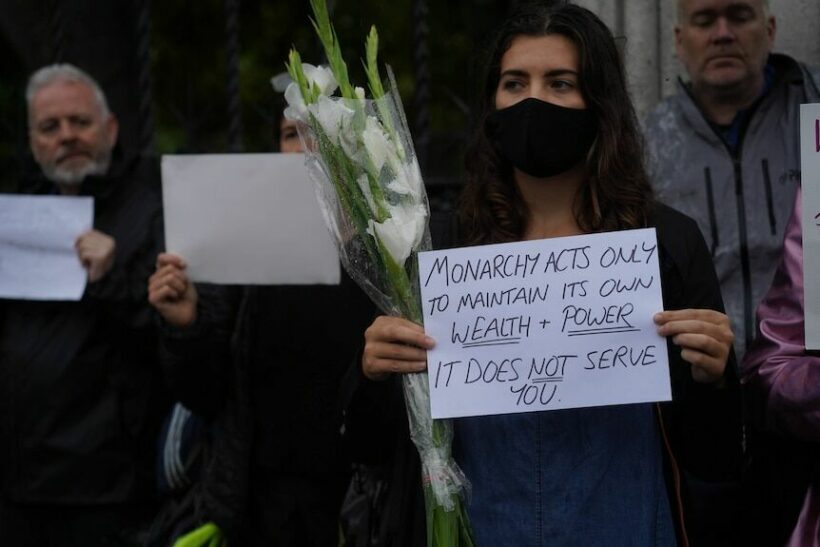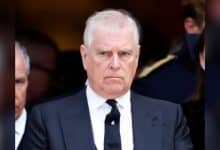UK police condemed for arresting anti-monarchy activists

Labour MP Zarah Sultana and a number of civil liberties campaigners have conveyed their dismay after heavy-handed police officers this week cracked down on anti-monarchy activists following the death of Queen Elizabeth II.
Several peaceful protestors were seen holding up placards with “Not my King” and “Abolish the Monarchy” written on them in Edinburgh, London, and Oxford causing police to swoop in and make arrests. Civil liberties campaigners say they are concerned that their freedom of expression is being quashed.
Labour MP Zarah Sultana was dismayed at the reaction of the police. She said…
“No one should be arrested for just expressing republican views. Extraordinary – and shocking – that this needs saying.”

One man was arrested in Edinburgh for heckling Prince Andrew as he walked behind the hearse that carried the Queen’s coffin with King Charles, the Princess Royal, and the Earl of Wessex.
Scottish Police Scotland reported that a 22-year-old man and a 52-year-old man had been arrested for a breach of the peace on the Royal Mile in Edinburgh on Monday.
A 22 year old woman in Edinburgh had been arrested a day earlier for protesting against the proclamation of the King.
The woman, Mariángela, had been seen holding a sign up outside St Giles’ Cathedral where the Queen’s coffin lay on Monday that said “Fuck imperialism, abolish the monarchy,” was arrested moments before the reading of the proclamation.
The group Mariángela represents, Global Majority Vs Campaign, released a statement following her arrest, saying it “condemned the centuries of colonial injustice, genocide, and unlawful extraction that have been – and continue to be – carried out in the name of the British Crown.
“Calling for the abolition of the monarchy is as old as the monarchy itself and is a cornerstone of freedom of speech in the UK.”
In London, a barrister, Paul Powlesland, was seen holding up a blank piece of paper in Parliament Square.
Powlesland revealed he had been threatened with arrest by a police officer under the Public Order Act. He said…
“He confirmed that if I wrote, ‘Not My King’ on it, he would arrest me under the Public Order Act because someone might be offended.
“A period of quiet mourning for the Queen is fine, but using that period to cement Charles’ accession as King and cracking down on any dissent to the accession as disrespectful is outrageous.”

Powlesland returned to parliament later Monday night with a group of people who shared his views and with a sign that said “Not my King.” The barrister added that he did not have any republican views until this week.
“Like a lot of British people, last week I was vaguely ambivalent. The Queen had been there all my life, it kind of seemed to work, it was a reassuring presence. But really what I’ve experienced this week has really turned me into a republican.
“They’re saying on the one hand this is a time for respect and national mourning and no protesting allowed, but I think Charles is being quite nakedly political in using this time.”
Another demonstrator, called Judy, said…
“I think we are in a situation in this country now that we have a lot to fight for. People are going hungry. People are going to face an increase … (in) their bills this winter, and the climate crisis … and then people can’t raise their voice, it’s awful.”
The UK’s republican movement had been running a #NotMyKing campaign before the Queen died and said it had no plans to protest this week during the period of mourning, but organisers said they were forced to speak up.
Graham Smith, the chief executive of Republic, said…
“We had planned not to campaign during this time and wanted to take into account how people were responding, but the very public and immediate accession of Charles to the throne needed a response.”
UK Prime Minister Liz Truss, an advocate of republicanism in her youth, was asked about the protests and police criticism. Her spokesperson said…
“This is a period of national mourning for the vast, vast majority of the country, but the fundamental right to protest remains the keystone of our democracy.”

Latest Thailand News
Follow The Thaiger on Google News:


























